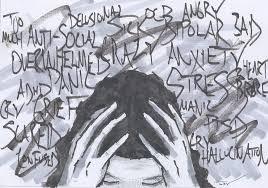Embrace the Future of Mental Health: Transforming Lives through Dallas Online Counseling
In today's fast-paced and demanding world, mental health has become a significant concern for individuals across the globe. The increasing prevalence of mental health issues calls for innovative and accessible solutions that can make a positive impact on people's lives. One such solution is Dallas online counseling, a transformative approach that leverages the power of technology to provide mental health support and therapy from the comfort of one's own home. By embracing the future of mental health through Dallas online counseling, individuals can experience a range
of benefits that can lead to improved wellbeing and a happier, more fulfilling life.
What is Dallas Online Counseling?
Dallas online counseling is a modern therapeutic approach that utilizes digital platforms and technologies to provide mental health services remotely. With the help of video conferencing, online chat, or phone calls, individuals can connect with licensed therapists and counselors from the

convenience of their homes. This innovative method removes geographical barriers, allowing individuals to access professional mental health support irrespective of their location.
The Advantages of Dallas Online

Counseling
Convenience and Accessibility
One of the primary advantages of Dallas online counseling is its convenience and accessibility. Traditional therapy often involves commuting to a therapist's o�ce, dealing with tra�c, and finding parking, which can be time-consuming and stressful. With online counseling, individuals can schedule sessions at their preferred time, eliminating the need for travel. It o�ers a flexible and convenient solution for those with busy schedules or limited mobility.

Anonymity and Privacy
For some individuals, seeking therapy in person can be daunting due to the fear of being recognized or judged. Dallas online counseling o�ers a greater level of anonymity, enabling individuals to discuss their concerns openly without worrying about their identity being disclosed. This increased sense of privacy can encourage individuals to seek help and share their feelings more honestly, leading to more e�ective therapy sessions.




